Singaravelar and Puducherry

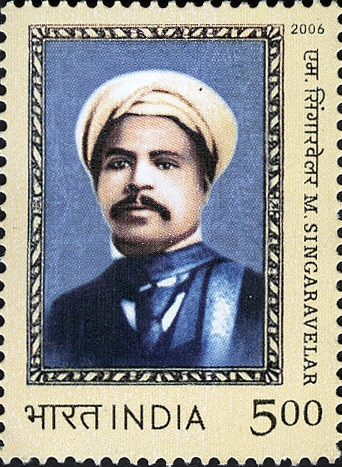
Although Marxist and Leninist literature was banned at that time, Singharavelar tried to read them and wrote articles and books in simple Tamil on the principles of communalism. At a time when the communist movement was banned in British India, the office of the Puduvai Murasu Magazine in Puducherry served as a bridge to bring many of the books Singaravelar needed from abroad.
The communalism books banned in India arrive at Puduvai Murasu Office, French India (Address: Manager, Puduvai Murasu Office, 4, Lalli Dolandal Road, Puduvai, French India). Mr. Singaravelar came to Puducherry and visited Sengundhar Street (today’s Arvindher Street) where Bharathidasan and Puduvai Sivam lived together and received the books. These incidents came to light through the memoirs of the poet Puduvaishiva in later times.
Many of Singharavelar’s reformist articles appeared in Puduvai Murasu. The one who corrected them all is the Puduvai Sivam. In 1931, in an article written in Puduvai Murasu magazine, Singaravelar was criticized by a magazine of the Catholic religious institute in Puducherry for his criticism of the religion for which Poet Puduvai Sivam wrote the rebuttal and reply. We also get memories of Singharavelar sitting on a reclining chair in front of the house where Bharathidasan and Puduvai Sivam lived and exchanging many ideas with them.
It was in this context that the “Self-Respect Samadharma Work Plan Consultative Meeting” (“சுயமரியாதை சமதர்ம வேலைத் திட்ட ஆலோசனை கூட்டம்”) was convened by Periyar at Erode in 1932, following Singaravelar’s suggestion. An invitation to this effect was sent by Periyar to Bharathidasan and Puduvai Sivam. According to the decision taken in it, Self-Respect Samadharma Party was formed.
Photos of Puduvai Sivam and Singaravelar
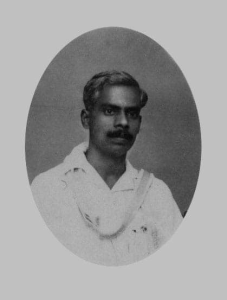
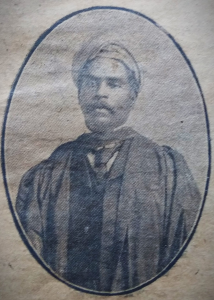
Many songs of Bharathidasan and Puduvai Sivam have been featured in the magazine “Pudu Ulagam” by the thinker Singaravelar. This is the song from the August issue of 1935:
வீரர்கள் வேண்டும்
(அறுசீர் விருத்தம்)
வீரர்கள் வேண்டு மென்றே விரும்பிடு நாட்டின் மக்கள்,
மூரிபோல் மதமூ டத்தில் மூழ்கியே கிடக்கின் றார்கள்;
வீரங்கொள் எண்ண மில்லை! விடுதலை நினைவு மில்லை!
காரிருள் சூழ்ந்த வாறு கதியற்றே விளங்கு கின்றார்!
பெண்களைக் கோழை யென்றும்; பிறவியி லிழிந்தோ ரென்றும்;
துன்புசெய் தடிமை கொண்டால் தோன்றுமோ வீர நெஞ்சம்?
பெண்களை வீர ராக்கின் பிறந்திடு சேய்கள் வீரர்!
எண்ணிய எண்ண மெல்லாம் இனிமையாய் முடியு மன்றோ?
அடிமையை உணரவேண்டும்! அக்கிரமந் தீர்க்க வேண்டும்!
மடமையைப் போக்க வேண்டும்!
மதம்சாதி தொலைக்க வேண்டும்!
படிதனில் சமதர் மத்தைப்
பரவிடச் செய்ய வேண்டும்!
திடமனங் கொண்ட வீரர் தேசத்தில் தோன்ற வேண்டும்!
-கவிஞர் புதுவைச் சிவம்
About Singalavelar (Wikipedia)
Malayapuram Singaravelu (18 February 1860 – 11 February 1946), also known as M. Singaravelu and Singaravelar was a pioneer in more than one field in India. In 1918, he founded the first trade union in India. On 1 May 1923, he organized the first-ever celebration of May Day in the country. Singaravelar was a major leader of the Indian independence movement, initially under the leadership of Gandhi, but later, joined the budding communist movement. In 1925, he became one of the founding fathers of the Communist Party of India; and chaired its inaugural convention in Kanpur. Though the British Government arrested him along with other leaders on charges of conspiring to wage war against the Crown, he was set free, soon after, on account of his failing health. Singaravelar was also a path-breaking social reformer who in his early life took to Buddhism, seeing it as a weapon against the evil of untouchability, which was particularly severe in 19th-century India. He was also at the forefront of the Self-respect movement, in the Madras Presidency that fought for equal rights for backward castes. Though in his advanced years, he withdrew from active politics, Singaravelar remained a staunch advocate of the causes he had pioneered till his death at the age of 85.
Source – Wikipedia




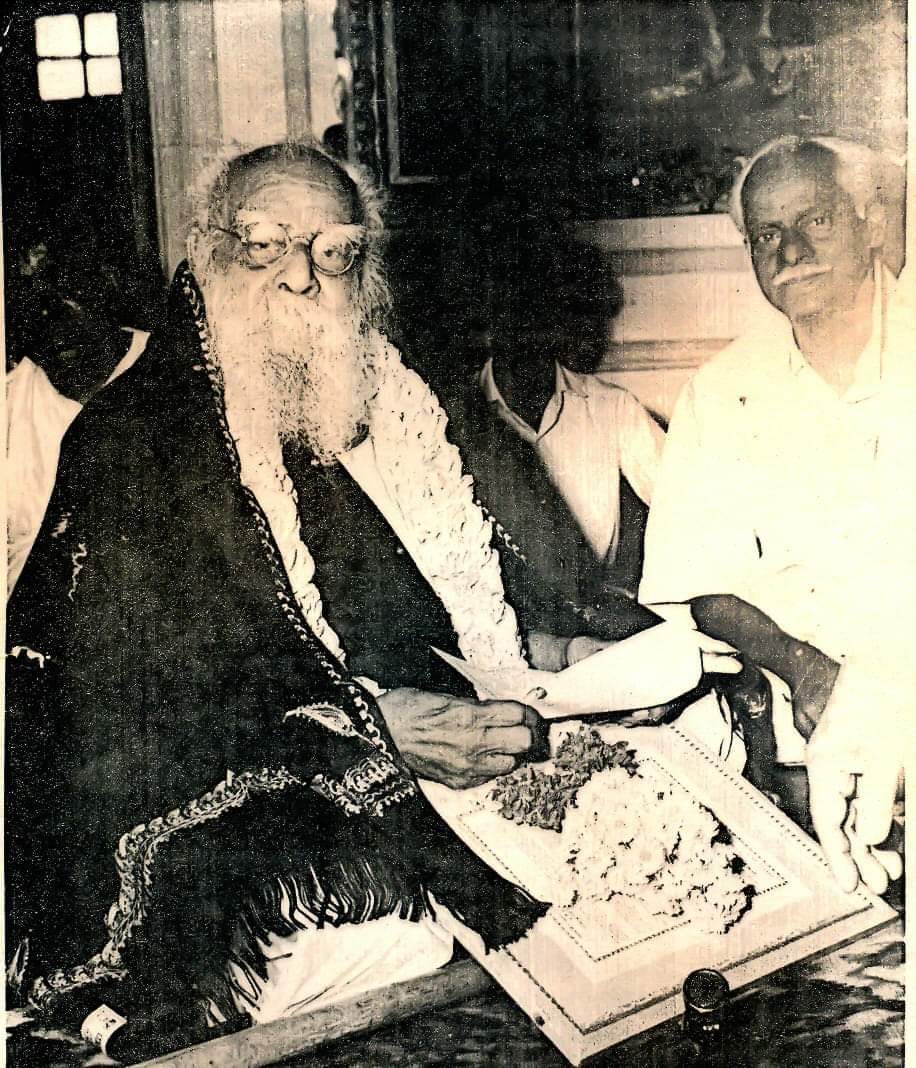 Periyar in Pondicherry
Periyar in Pondicherry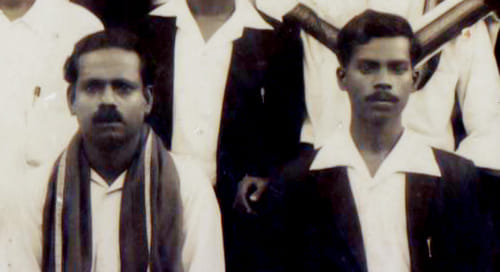 "A Song without any rhyme" - Bharadhidasan
"A Song without any rhyme" - Bharadhidasan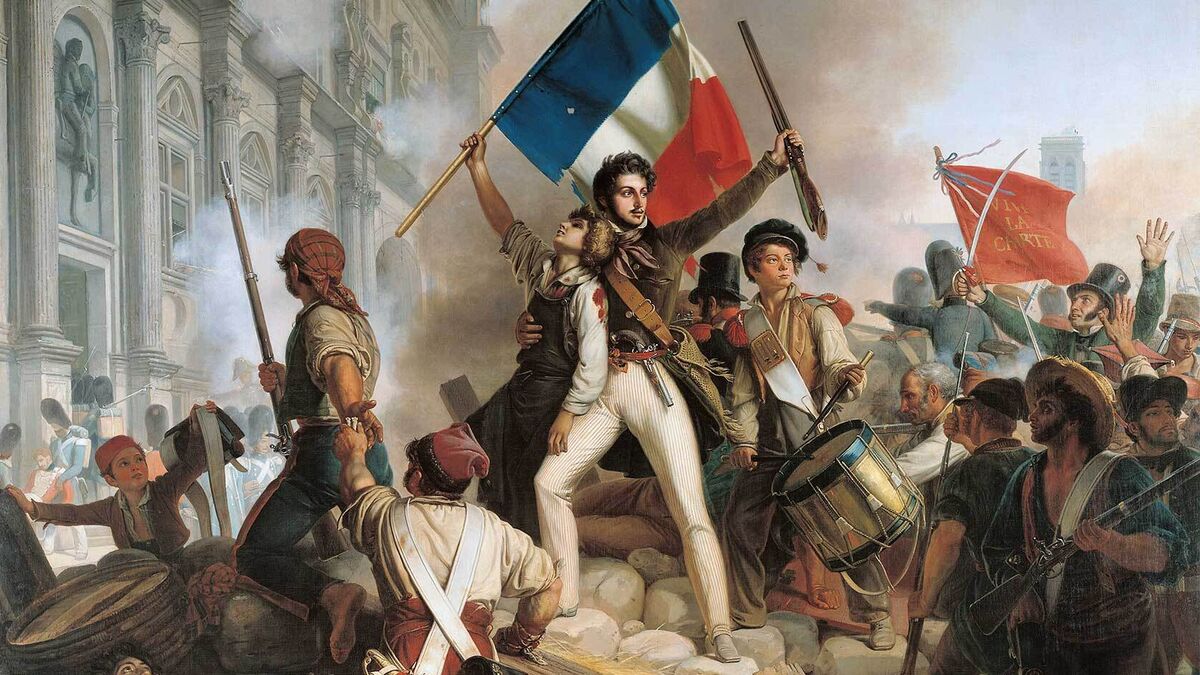 French Revolution and Puducherry
French Revolution and Puducherry


